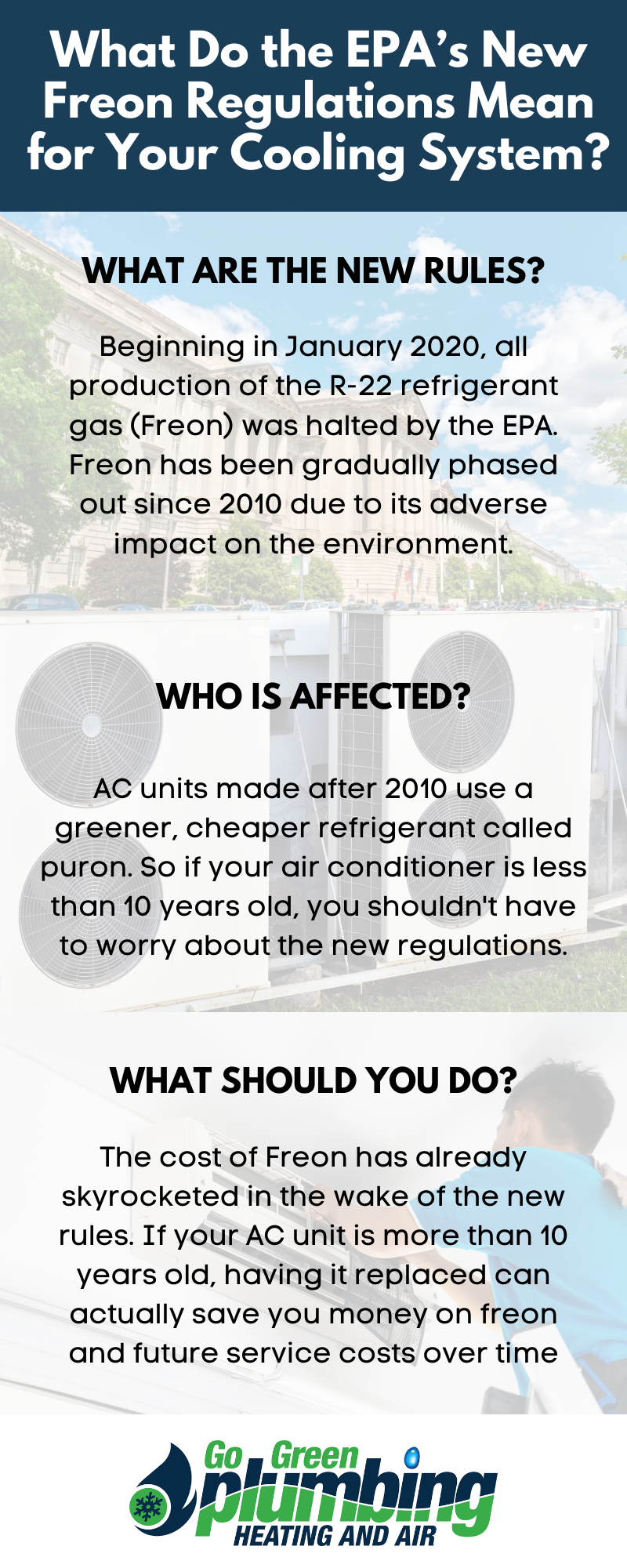Summer in the Greensboro-High Point area is here once again, as are the trademark heat and humidity that residents have grown accustomed to. With temperatures already climbing, people are turning to their air conditioning systems to restore indoor comfort.
This summer is different from years past as new EPA regulations continue to change the way many homeowners keep cool. In January, production of the R-22 refrigerant gas, more commonly known as Freon, was permanently stopped per new regulations. This halt is set to have a positive long-term impact on the environment, but will likely cause some confusion among homeowners with older units. Here’s what everyone should know about what these regulations mean and how to comply with them:

Who Is Affected?
For the most part, homeowners with modern air conditioners should not worry about the new regulations. The EPA has labeled Freon as harmful to the ozone since 1992, and its gradual phasing-out has been in the works ever since. Since 2010, manufacturers have been making air conditioning units with a different gas called Puron, also known as R410A. Puron is much safer than Freon for the environment, and the result of this is that Freon production has declined since Puron was made widely available.
If you’re a homeowner with a pre-2010 air conditioner, you have likely already been dealing with steadily increasing Freon prices for the last decade. Unfortunately, this problem is about to get worse, as the new regulations will make Freon much harder to find and consequently drive up costs.
Do You Have to Replace Your Unit?
While the EPA regulation changes can make it a wise investment, air conditioner replacement isn’t necessarily a must — even if your system is older than ten years. Air conditioners that still utilize Freon can continue to be used if they show no signs of leaking or being low on charge. By scheduling professional air conditioning maintenance two times a year and keeping your filters clean, you can extend your system’s lifespan longer than you may think.
Why Should You Consider Replacement?
If you use an air conditioner that’s over ten years old in your home, there are a few ways to deal with these changes and keep your home comfortable in the process. However, having a new air conditioner installed can save you money and yield returns over time.
New air conditioner installation can have a high price tag, but the cost of running older units coupled with the staggering prices of Freon makes it an advantageous decision. Typically, the lifespan of a residential air conditioner is between 10-15 years, meaning that your unit may be nearing the end of its service life if it still uses Freon.
For more information, contact Go Green Plumbing today!

